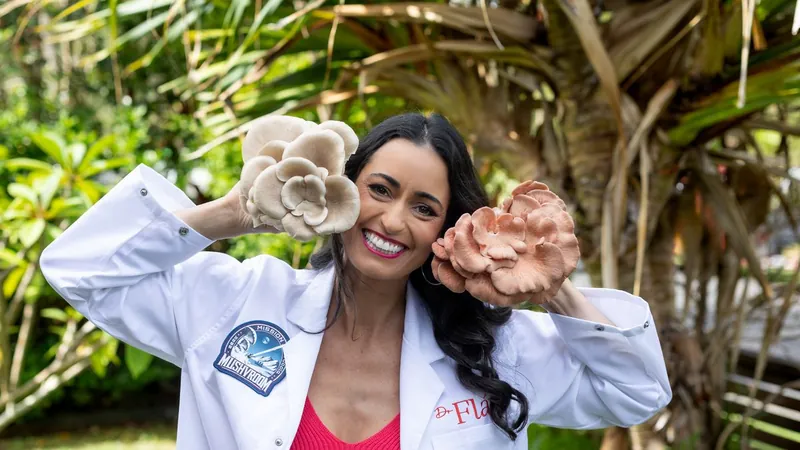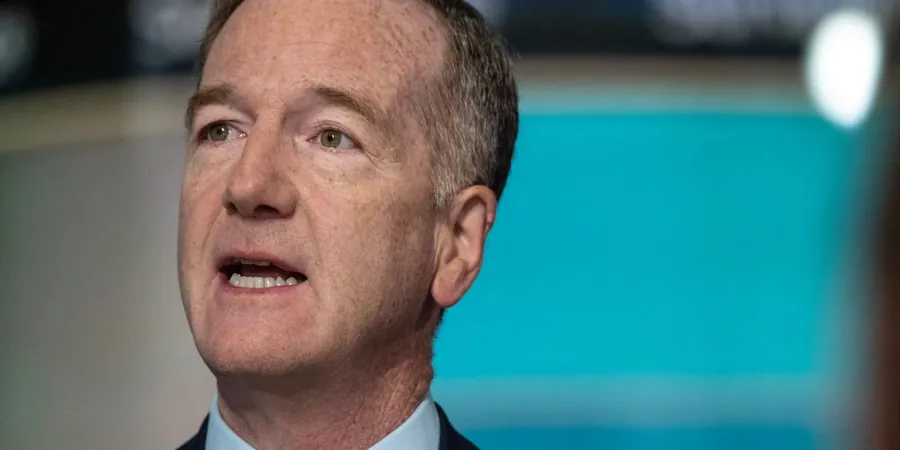
SpaceX's Groundbreaking Fram2 Mission: Astronauts Set to Grow Mushrooms in Space!
2025-03-30
Author: Chun
Introduction
In a historic first, astronauts aboard SpaceX's upcoming Fram2 mission will attempt to cultivate mushrooms in space. Set to launch on a SpaceX Falcon 9 rocket as early as March 31, this mission promises to break new ground as it marks the first human spaceflight to traverse Earth's polar regions.
Mission Overview
The Fram2 mission will position the crew of four in a 90-degree orbit, enabling them to fly over both the North and South Poles. Among the exciting experiments planned is an initiative called Mission MushVroom, spearheaded by the Australian company FOODiQ Global. The mission's objective is to grow oyster mushrooms in the unique conditions of microgravity, a venture that could revolutionize food sustainability for long-duration missions to destinations such as the Moon and Mars.
Expert Insights
Flávia Fayet-Moore, CEO of FOODiQ Global and an expert in space nutrition, stated, "Mushrooms are the perfect space crop." She emphasized that oyster mushrooms can double in size daily, providing a nutrient-rich food source. Notably, when exposed to UV light, they can produce the full daily requirement of vitamin D for astronauts, potentially replacing the need for certain dietary supplements currently consumed on the International Space Station.
The Crew
The mission is led by Maltese entrepreneur Chun Wang and features a diverse crew that includes vehicle commander Jannicke Mikkelsen from Norway, medical officer Eric Philips from Australia, and pilot Rabea Rogge from Germany. This will be the maiden spaceflight for each crew member.
Mission Duration and Focus
Scheduled to last between three to five days, the Fram2 mission will focus on various research experiments crucial to astronaut health, with a significant emphasis on nutrition. The mushroom-growing experiment will take place on the final day of the mission, under the guidance of Philips.
Advantages of Mushrooms in Space
Fayet-Moore explained that in space, food can often lose its flavor due to altered taste perceptions, making mushrooms an ideal food choice because of their robust umami flavor. Additionally, oyster mushrooms are resilient and can thrive on 100% inedible plant waste and even materials like cotton, showcasing them as an environmentally sustainable option.
MushVroom Experiment Details
During the MushVroom experiment, the crew will carefully prepare the substrate for the oyster mushrooms and observe the fruiting process critical for spore release. They will monitor the growth rate, check for contamination, and document various other growth characteristics. Following their return, researchers at FOODiQ Global will analyze the samples grown in space to understand the effects of microgravity better, providing invaluable insights that could benefit future space missions.
Conclusion
As humanity pushes the boundaries of space exploration, the Fram2 mission not only signifies a step towards sustainable food solutions in space but also eagerly anticipates the flavor that could bring freshness to astronaut food—making it an exciting milestone for both space enthusiasts and scientists alike! Stay tuned as history is made in the final frontier!



 Brasil (PT)
Brasil (PT)
 Canada (EN)
Canada (EN)
 Chile (ES)
Chile (ES)
 Česko (CS)
Česko (CS)
 대한민국 (KO)
대한민국 (KO)
 España (ES)
España (ES)
 France (FR)
France (FR)
 Hong Kong (EN)
Hong Kong (EN)
 Italia (IT)
Italia (IT)
 日本 (JA)
日本 (JA)
 Magyarország (HU)
Magyarország (HU)
 Norge (NO)
Norge (NO)
 Polska (PL)
Polska (PL)
 Schweiz (DE)
Schweiz (DE)
 Singapore (EN)
Singapore (EN)
 Sverige (SV)
Sverige (SV)
 Suomi (FI)
Suomi (FI)
 Türkiye (TR)
Türkiye (TR)
 الإمارات العربية المتحدة (AR)
الإمارات العربية المتحدة (AR)